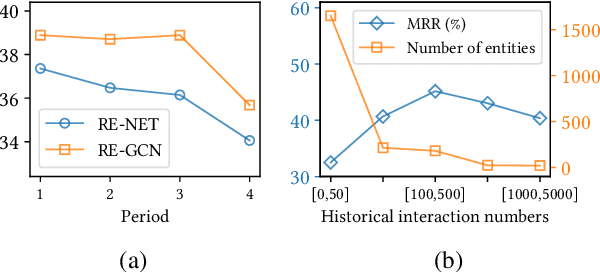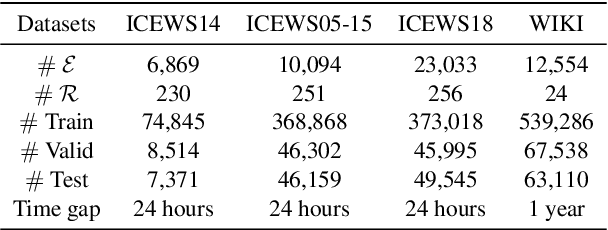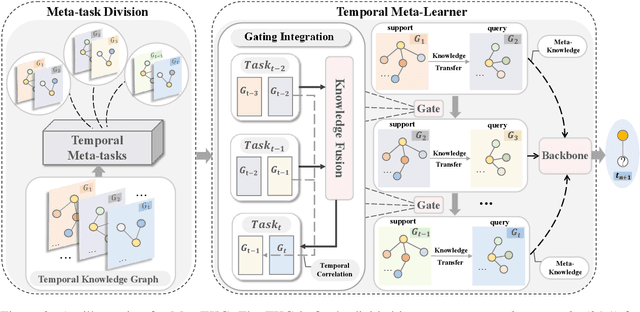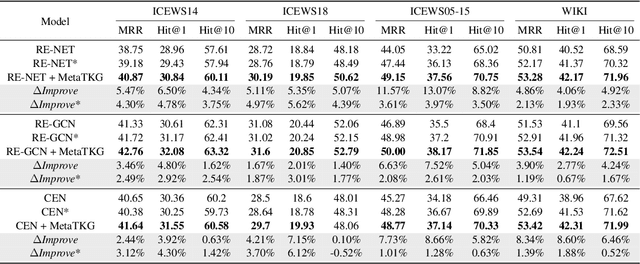MetaTKG: Learning Evolutionary Meta-Knowledge for Temporal Knowledge Graph Reasoning
Paper and Code
Feb 02, 2023



Reasoning over Temporal Knowledge Graphs (TKGs) aims to predict future facts based on given history. One of the key challenges for prediction is to learn the evolution of facts. Most existing works focus on exploring evolutionary information in history to obtain effective temporal embeddings for entities and relations, but they ignore the variation in evolution patterns of facts, which makes them struggle to adapt to future data with different evolution patterns. Moreover, new entities continue to emerge along with the evolution of facts over time. Since existing models highly rely on historical information to learn embeddings for entities, they perform poorly on such entities with little historical information. To tackle these issues, we propose a novel Temporal Meta-learning framework for TKG reasoning, MetaTKG for brevity. Specifically, our method regards TKG prediction as many temporal meta-tasks, and utilizes the designed Temporal Meta-learner to learn evolutionary meta-knowledge from these meta-tasks. The proposed method aims to guide the backbones to learn to adapt quickly to future data and deal with entities with little historical information by the learned meta-knowledge. Specially, in temporal meta-learner, we design a Gating Integration module to adaptively establish temporal correlations between meta-tasks. Extensive experiments on four widely-used datasets and three backbones demonstrate that our method can greatly improve the performance.
 Add to Chrome
Add to Chrome Add to Firefox
Add to Firefox Add to Edge
Add to Edge